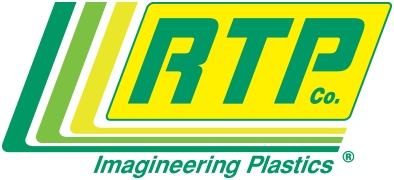Search Case Studies
End-Use Case Study
- Dimensional tolerance & stability
- Stiffness
- Material meets flow requirements

Electronic encapsulation materials are chosen for their ability to insulate by three mechanisms: thermally, electrically and mechanically. Traditionally, such materials have included polyesters, cellulosics, or even thermosets. Each material has its limitations, and none proved capable of meeting all of Accumold’s needs. Foremost, it was essential that the material flow well and be capable of fully filling wall thicknesses of only 0.0045 in (0.11 mm). Final dimensions of the capacitor are 0.040 in. x 0.040 in. x 0.070 in. (1.02 mm x 1.02 mm x 1.78 mm). On a part so small, nearly any measurable change would loom large; dimensional stability was critical. As internal electronic components were to be hand soldered, the material had to withstand temperatures of 500 degrees F (260 degrees C). Further, dimensional tolerances had to be retained throughout these temperature variationsÑthus a low coefficient of thermal expansion was a necessity.
To meet these requirements, Greg Peterson, Engineering Manager at Accumold, worked with RTP Company product development engineers, to select an RTP 3400 Series reinforced liquid crystal polymer (LCP) compound. Accumold even manufactured a proprietary Micro-Mold™ miniature injection press and built a new single cavity tool specifically for the specialty compound and this application. Peterson cited RTP Company’s quick and accurate engineering assistance in specifying the material as key to the projects success.
LCP’s are inherently heat resistant, but, unmodified, they typically present a challenging dilemma for the designer. In the direction of flow, they exhibit a negative coefficient of thermal expansionÑshrinking when heated; transverse to flow, their thermal expansion is positive. To negate these effects, the RTP 3400 Series LCP compound contains a custom reinforcement that increases dimensional stability both out of the mold and throughout varying temperature cycles. With a flexural modulus of 1.2 psi x 106 (8268 MPa), and a heat deflection temperature of 500 degrees F at 264 psi (260 degrees C at 1.82 MPa), the RTP 3400 Series LCP maintained adequate stiffness—and necessary dimensional tolerance—throughout the temperature range. In addition, the material can achieve the required V-0 flammability rating without the need for additional flame suppressants.
LCP’s also exhibit an extremely high degree of crystallinity when properly processed. This conveys to the molded part an effective resistance to the wide range of chemicals it is subject to during the manufacturing process. In the original part, after electronics were inserted, the ends were sealed with epoxy, encapsulating the components. The new part was designed with one solid molded end, immediately cutting labor required to seal the part by half. Although the RTP 3400 Series LCP’s crystallinity resists chemical attack, it remains bondable. In fact, the parts present a micro porous surface which, coupled with the reinforcement’s particulate substrate, provides a substantially increased surface area for the bonding agent to contact.
Peterson lauded RTP Company for its ability to, “Bring real engineering knowledge directly to bear on my customer’s requirements.” He added that response time, “Both in delivering crucial technical support as well as materials, allowed us to use our expertise to deliver increased value to our customer.”
Accumold of Ankeny, IA, specializes in micron molding precision parts for the electronics and communications industries. They also manufacture Micro-Mold™ precision miniature injection molding presses. Visit their website at www.accu-mold.com.




